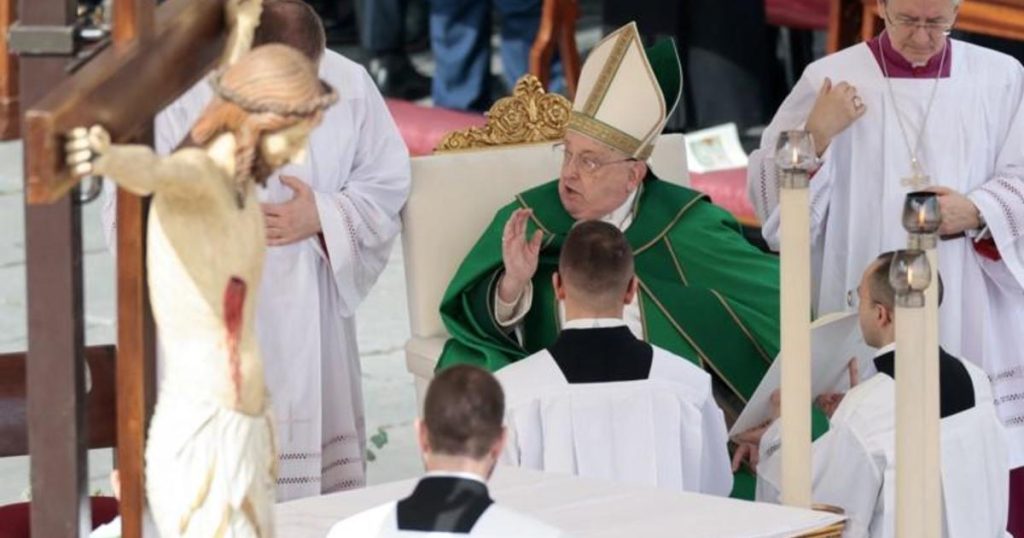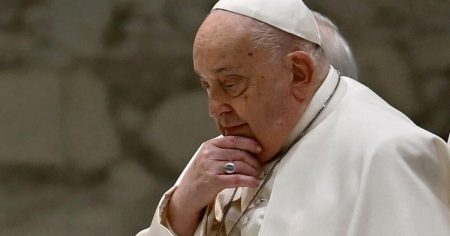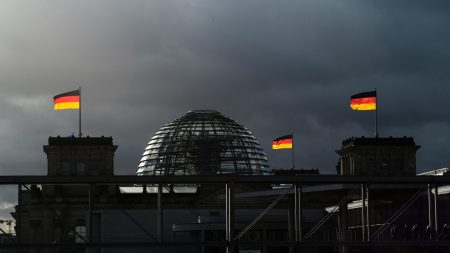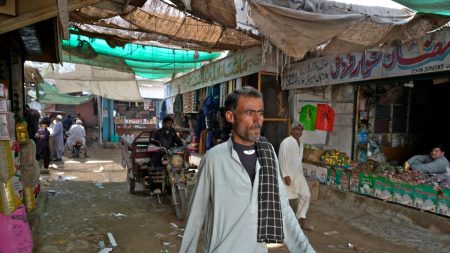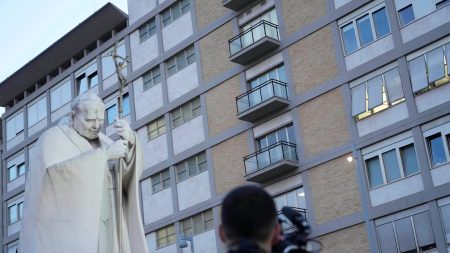A Clash of Values: Trump’s Border Policy Sparks Tension with Pope Francis
Introduction: A High-Stakes Debate
The issue of immigration has long been a contentious topic in U.S. politics, but a recent exchange between President Donald Trump’s administration and Pope Francis has brought the debate to a global stage. At the heart of the conflict is Trump’s aggressive mass deportation program, which has drawn sharp criticism from the Catholic Church’s leader. Pope Francis, in a strongly worded letter to U.S. Catholic bishops, condemned the policy, arguing that it violates human dignity and fails to recognize the equal worth of all individuals. Tom Homan, Trump’s “border czar,” fired back at the pope, suggesting he should focus on internal Church matters rather than U.S. border enforcement. This exchange highlights broader tensions between nationalist immigration policies and the Catholic Church’s teachings on compassion and human rights.
Homan’s Sharp Rebuke: Defending Trump’s Policies
Tom Homan, a lifelong Catholic and staunch defender of Trump’s immigration agenda, minced no words in his response to Pope Francis. When asked by a Fox News reporter about the pope’s criticism, Homan retorted, “I’ve got harsh words for the pope: I say this as a lifelong Catholic. He ought to focus on his work and leave enforcement to us. He’s got a wall around the Vatican, does he not?” This statement reflects Homan’s belief that the pope should not interfere in U.S. domestic affairs, particularly when it comes to border security. Homan reiterated his stance during a White House press briefing, stating, “I wish he’d stick to the Catholic Church and fix that and leave border enforcement to us.” For Homan, the matter is one of national sovereignty and the enforcement of laws, which he believes should not be questioned by religious leaders.
Pope Francis’s Moral Stand: A Call for Compassion
Pope Francis’s letter to U.S. bishops laid out a clear moral framework for evaluating immigration policies. The pope acknowledged that nations have the right to defend their borders and enforce laws, particularly against migrants who commit crimes. However, he argued that this right does not justify treating undocumented immigrants as criminals simply for their illegal status. “The rightly formed conscience cannot fail to make a critical judgment and express its disagreement with any measure that tacitly or explicitly identifies the illegal status of some migrants with criminality,” Francis wrote. He emphasized that deportation policies targeting individuals fleeing extreme poverty, insecurity, exploitation, or environmental disaster “damage the dignity of many men and women, and of entire families, and places them in a state of particular vulnerability and defenselessness.” In the pope’s view, such policies undermine the fundamental dignity of human beings and contradict the principles of Christian love.
The Pope’s Vision of Christian Love and Migration
At the heart of Pope Francis’s critique is his understanding of Christian love, which he believes should transcend borders and prioritize the well-being of all people, regardless of their nationality. In his letter, he directly challenged the idea that love and responsibility should be hierarchical, with individuals prioritizing their families, communities, and citizens over outsiders. This notion was recently promoted by Vice President J.D. Vance, who cited the medieval Catholic concept of “ordo amoris” (the order of love) to justify limiting moral obligations to those closest to us. Francis rejected this interpretation, arguing that Christian love is not a “concentric expansion of interests” but rather a universal call to fraternity, as exemplified in the parable of the Good Samaritan. “The true ordo amoris that must be promoted is that which we discover by meditating constantly on the parable of the ‘Good Samaritan,’” he wrote, “that is, by meditating on the love that builds a fraternity open to all, without exception.”
A History of Conflict: Trump and Francis on Immigration
This is not the first time Pope Francis and Donald Trump have clashed over immigration. In 2016, during Trump’s presidential campaign, Francis criticized Trump’s plan to build a wall along the U.S.-Mexico border, stating, “Building walls instead of bridges is not Christian.” More recently, in January 2025, Francis called Trump’s mass deportation plan a “disgrace,” arguing that it unfairly punishes vulnerable individuals who are already suffering. These public disagreements reflect deeper philosophical differences between the two leaders. While Francis has made the defense of migrants and refugees a central theme of his papacy, Trump has consistently framed immigration as a national security issue, emphasizing the need for strict enforcement and border control.
Conclusion: The Broader Implications of the Debate
The exchange between Pope Francis and Tom Homan highlights the complex interplay between religion, politics, and human rights in the immigration debate. While Homan and other Trump administration officials argue that their policies are necessary to maintain national security and the rule of law, Francis and many Catholic leaders contend that such measures contradict the moral imperative to protect the dignity of all human beings. This tension is unlikely to resolve soon, as it touches on deeply held beliefs about identity, morality, and the role of government. For now, the clash between the Trump administration and the Vatican serves as a reminder of the profound challenges of balancing national interests with universal values of compassion and justice.





